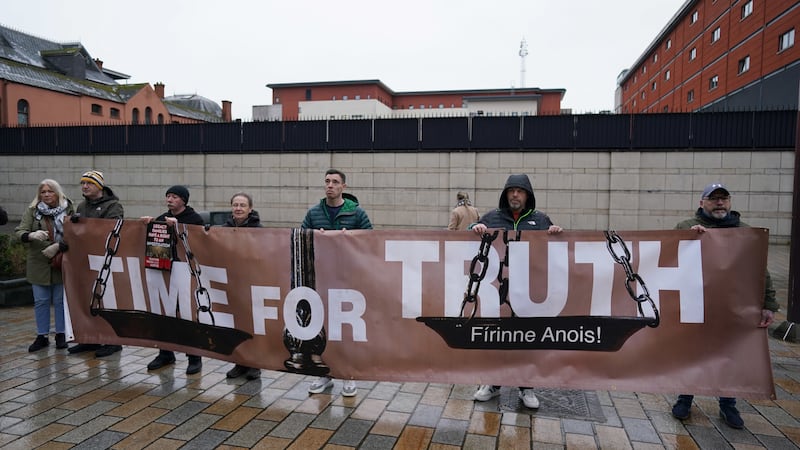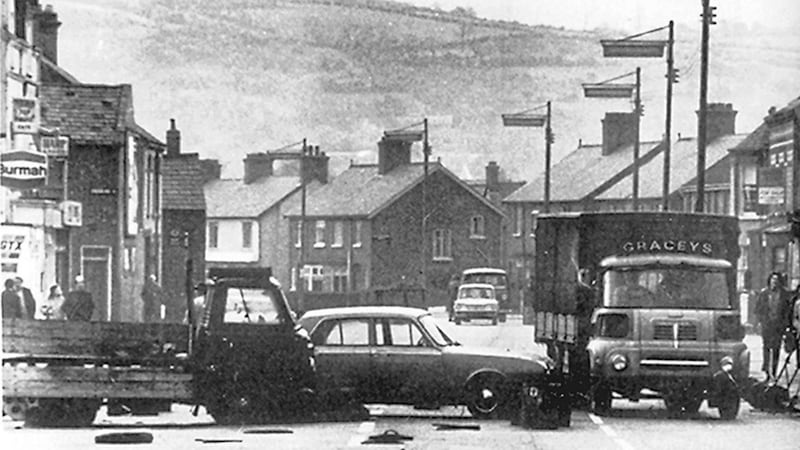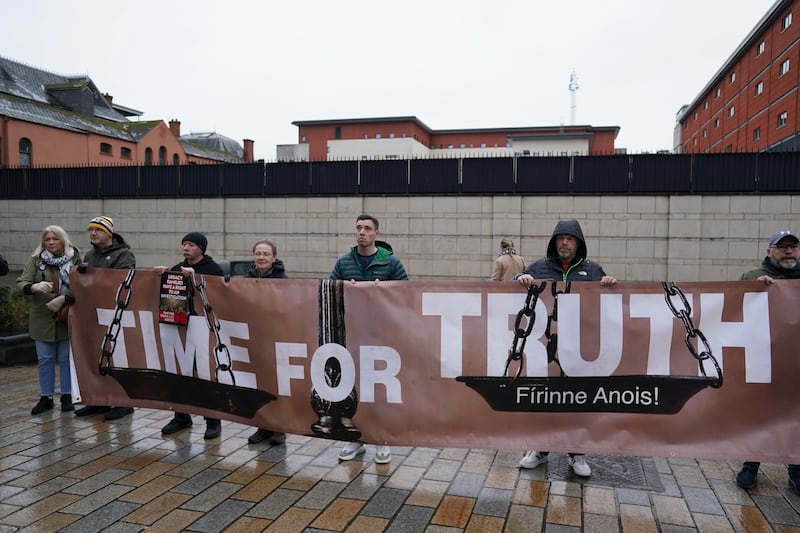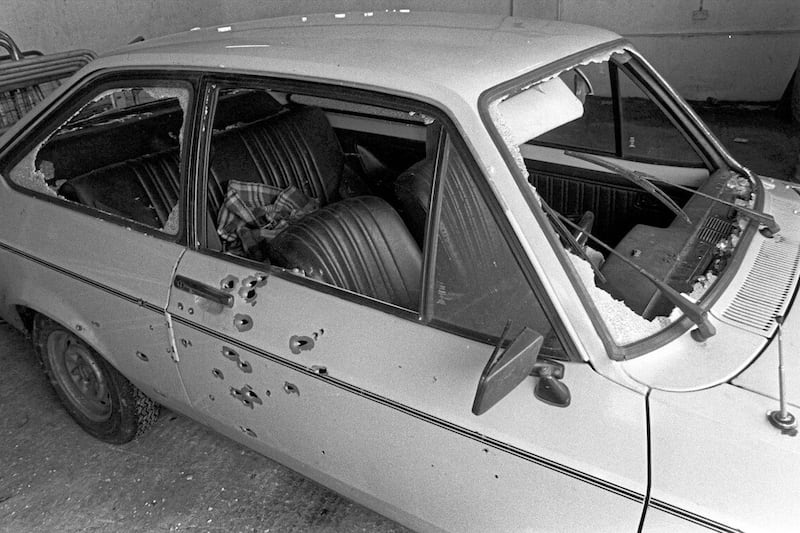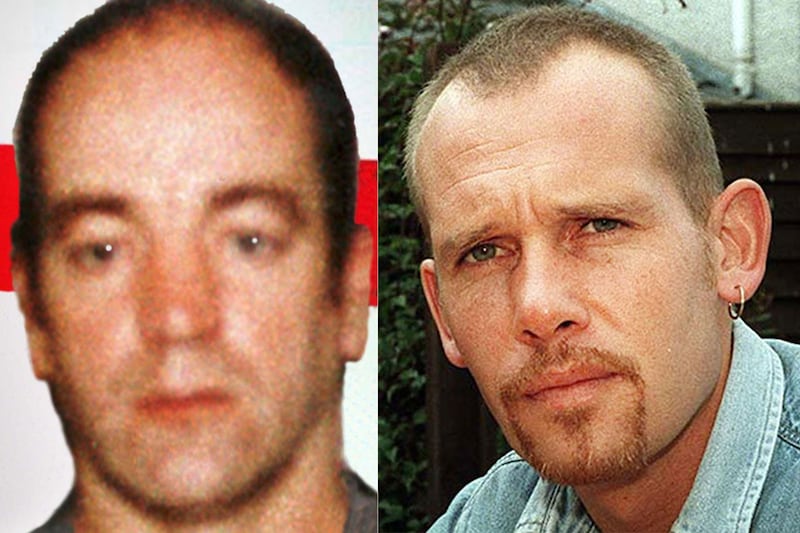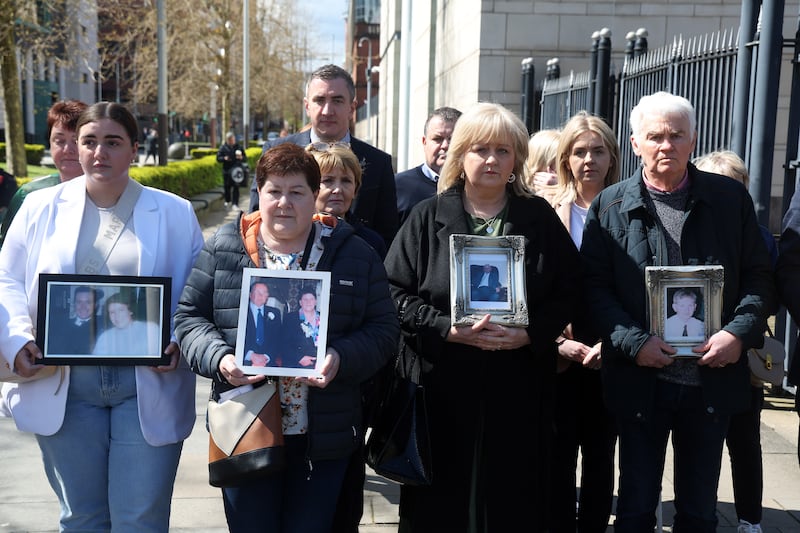The shutting down of all legal avenues for Troubles-linked incidents will be seen by many as a show of contempt for those who suffered unbearable loss during the Troubles.
But for others it is more than just a demonstration of disregard for the pain and suffering endured by thousands of people over the past five decades.
Many, especially in the nationalist community, but not exclusively, can see beyond the cold eye cast in their direction by the British establishment.
For them, the decision by the British state to close all legacy investigations is seen as a cynical bid to bury the part their forces played during the years of conflict.
In recent years a steady stream of reports from the Police Ombudsman’s Office have concluded that “collusive behaviour” existed between loyalist killer gangs, the RUC and elements of the British army.
Numerous reports by the ombudsman, and other investigators, reveal a web of collusion, and what some believe amounts to a cover up, during the Troubles.
For many the issue of collusion remains at the heart of the state’s winding down of legacy mechanisms over recent months.
While Tory ministers initially insisted action needed to be taken to protect their soldiers from prosecution, many believe the desire to hide the part of state actors in murder is their main motivation.
As this week’s Legacy Law deadline neared, more, potentially damaging, information began to emerge from dozens of inquests that were ongoing.
As part of the coronial process state bodies are required provide ‘disclosure’, or information, relevant to proceedings.
However, in Troubles cases this process is often hampered by Public Interest Immunity (PII) applications.
PII certificates are regularly sought by state bodies to withhold information they do not want the public to see.
It is thought documents covered by PII have the potential to go to the heart of suspicions that state forces had a hand in sectarian murder and other serious incidents.
In recent weeks several inquests were abandoned after coroners concluded information necessary to establish how someone died was covered by PII.
Attempts by several coroners to produce a gist, or limited summary, of sensitive information has been met by legal challenges driven by Secretary of State Chris Heaton-Harris.
The thread of collusion runs through each of the inquests at the centre of this unprecedented intervention.
For many nationalists the existence of collusion is proven and they have no doubt the state acted with impunity.
For some relatives, attempts to conceal the role of state players further compounds the acts of collusion, obstruction and cover-up many have encountered.
Some will see the recent, almost desperate attempts, by the state to withhold even small snippets of information as little more than an attempt to further pollute the truth recovery process.
